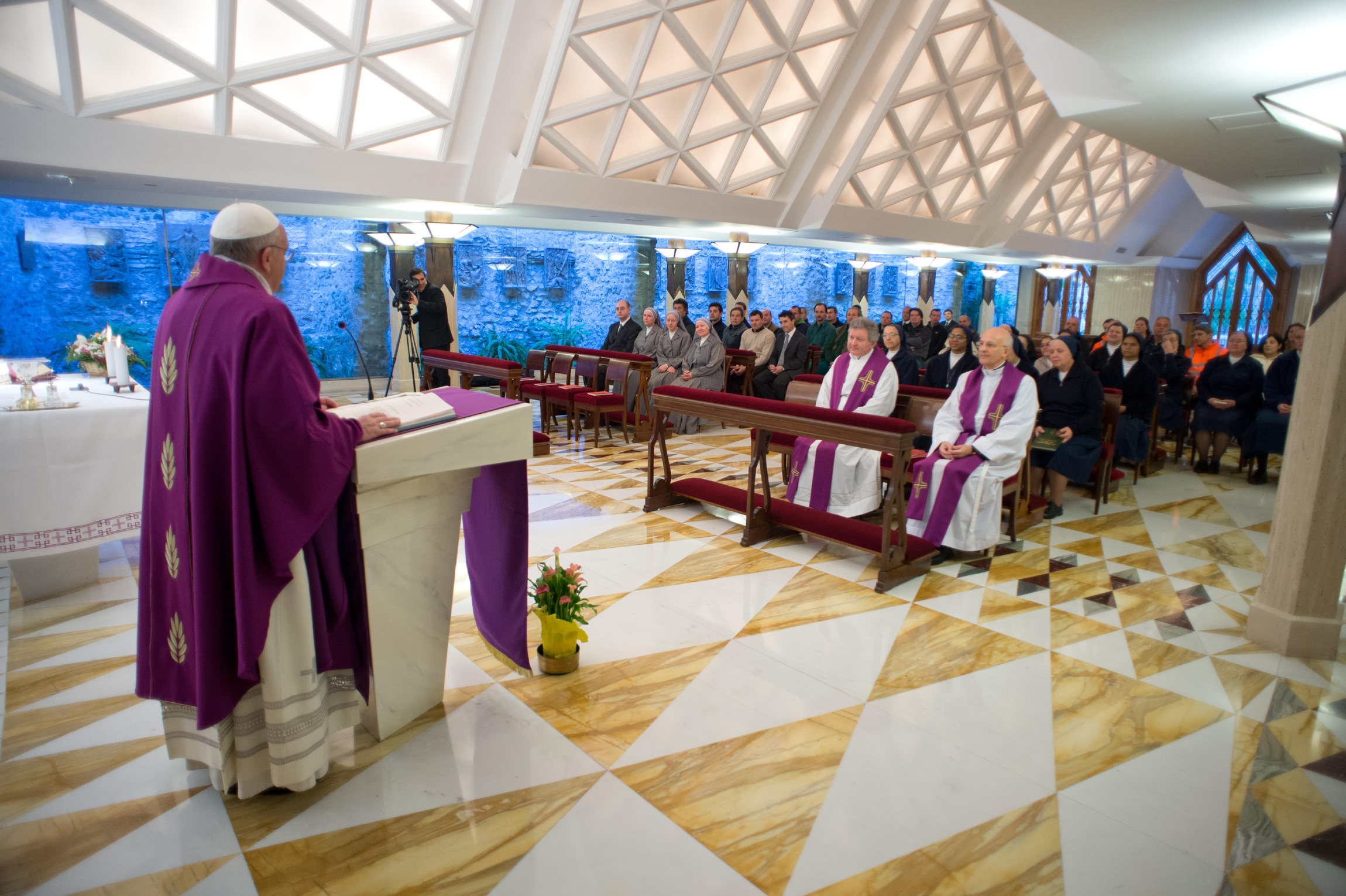
Pope Fancis preaching in Domus Sanctae Marthae (CNS photo)
Pope Francis’ daily homilies, delivered without notes at the morning mass he celebrates in the chapel of the Domus Sanctae Marthae inside the Vatican, have drawn worldwide interest. His reflections on the daily readings are repeatedly cited in news stories and blogs. Often simple, but piercing in character, they speak as much to gospel lessons as to the man who articulates them.
Vatican radio reports summaries of these homilies, but while under pressure to provide texts, has resisted doing so. Today in a statement released by the Vatican Press Office, Jesuit Father Federico Lombard explained why. The statement follows:
“First of all,” said Lombardi, “it is necessary to keep in mind the character that the Holy Father himself attributes to the morning celebration of Mass at St. Martha's. It is a Mass attended by a, not small, group of faithful (usually over 50 persons), but the Pope wants to maintain its familiar atmosphere. That is why, notwithstanding the requests that have been received, he has specifically requested that the live video and audio not be broadcast.”
“Regarding his homilies, they are not given from a written text but spontaneously and in Italian, a language that the Pope knows well but which isn't his mother tongue. A 'complete' publication, therefore, would necessarily entail a transcription and a reworking of the text at various points, given that the written form is different from the spoken one, which in this case is the original form chosen intentionally by the Holy Father. In short, it would entail editing by the Holy Father himself, but the result would clearly be 'something else', which isn't what the Holy Father intends to do [with his daily homily] each morning.”
Lombardi also noted that the difference between the Pope's public and private activities must be recognized. In the former, Pope Francis' complete texts are released, while in the latter it is necessary to “respect the particular character of the situation, the spontaneity and familiarity of the Holy Father's expressions. The solution that was chosen respects, above all, the Pope's wishes and the nature of the morning celebrations while, at the same time, allowing a wide public to have access to the main messages that the Holy Father offers the faithful in those circumstances.”
